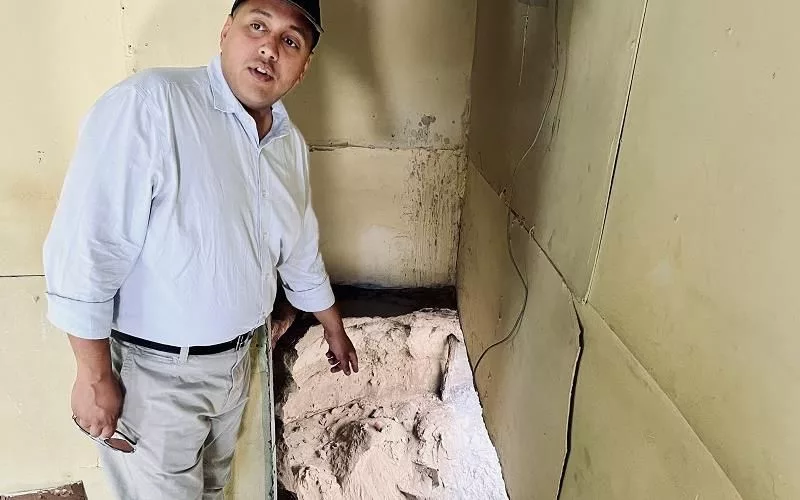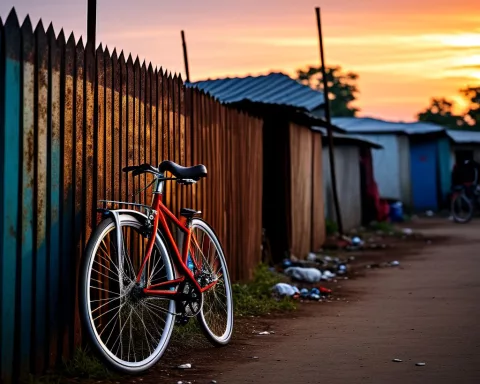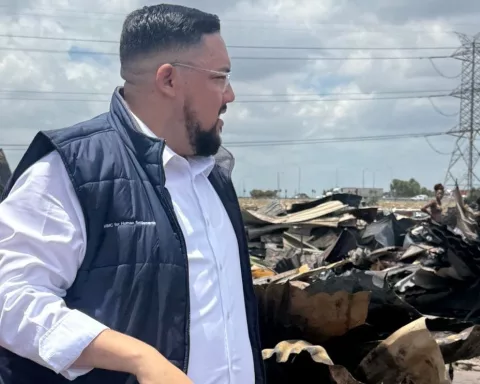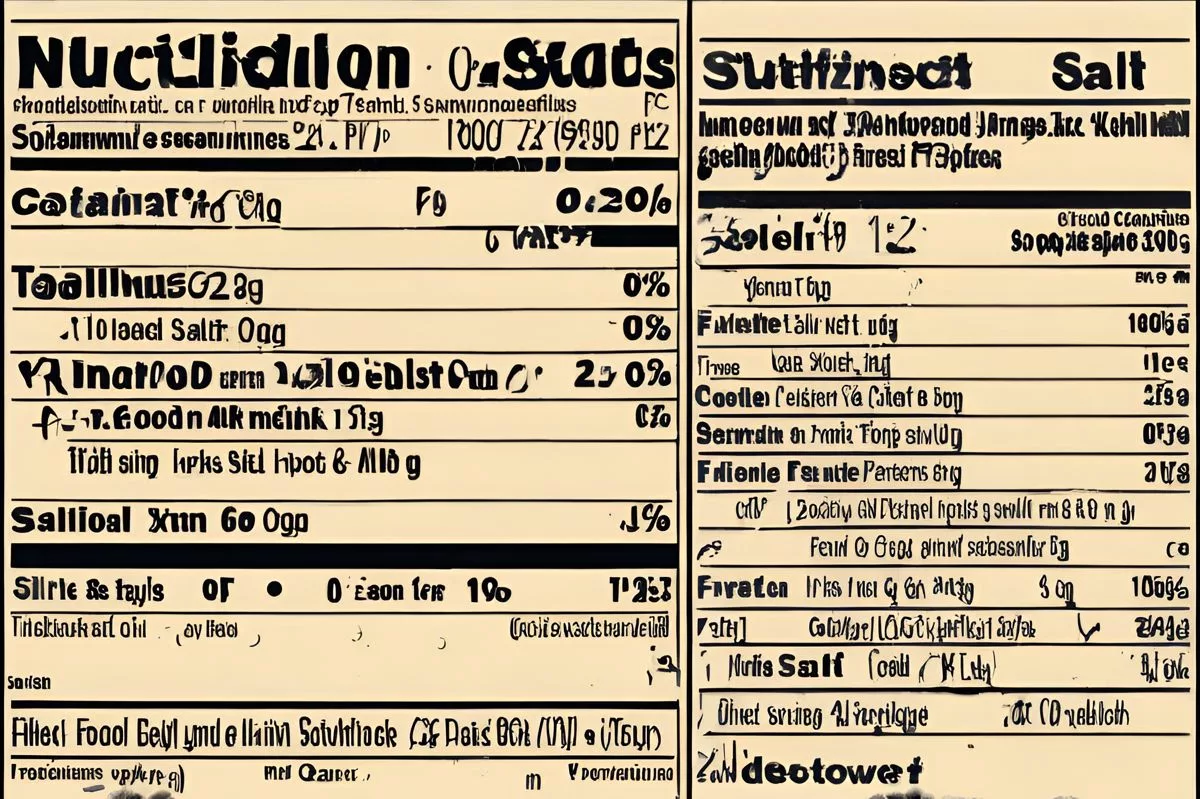The repair of three collapsed sewer pipes in SST Informal Settlement is reliant on the repositioning of structures that residents have constructed over these pipes. The city has started dialogues with residents and stakeholders to alleviate this problem, and the intersection of urban planning and community involvement is crucial in maintaining the collective liability. The situation in SST represents a wider context of a city wrestling with urban planning challenges while striving to guarantee the provision of essential services, emphasizing the significance of community unity and involvement in overcoming such hurdles.
The crucial role of community cooperation: The repair of three collapsed sewer pipes in SST Informal Settlement, Town 2, Khayelitsha is reliant on the repositioning of structures that residents have constructed over these pipes. The city has started dialogues with residents and stakeholders to alleviate this problem. The intersection of urban planning and community involvement is crucial in maintaining the collective liability.
Heading: The Daunting Task Ahead
The Water and Sanitation Directorate of the city is primed and prepared to confront the impending task – the essential reconstruction of three collapsed sewer pipes in SST Informal Settlement, Town 2, Khayelitsha. However, the initiation of this undertaking is reliant on a pivotal condition: the repositioning of structures that residents have constructed over these pipes.
The SST Informal Settlement encountered a significant obstacle the previous year with five sewer collapses. The city demonstrated admirable progress in rectifying the problem, with two collapses successfully resolved. However, the route to the remaining three is currently blocked by buildings constructed by the inhabitants over the sewer system. This has caused a postponement in the repair process.
To alleviate this problem, the city started multiple dialogues with residents and stakeholders. The outcome was the relocation of 16 structures the previous year. This gave way to a 10-meter portion of the sewer pipe, hidden three meters underground. This first phase of the project was executed in December 2023, with costs reaching around R421,000.
Heading: The Current State of SST
The current situation in SST is fraught with worry, as the threat of more collapses is imminent. This is predominantly due to the weight of the structures and the growing number of people inhabiting the area, which exerts significant pressure on the underground pipes.
City Councillor Zahid Badroodien, the Mayoral Committee Member for Water and Sanitation, appealed for community support for the city’s repair efforts. This involves refraining from obstructing attempts to move the implicated structures. In partnership with the City’s Human Settlements Directorate and the local ward councillor, plans are being developed to relocate the remaining 76 structures. This would enable the city to concentrate on and accelerate the sewer repairs.
City Councillor Carl Pophaim, the Mayoral Committee Member for Human Settlements, highlighted the necessity of gaining access to the sewer system. He urged the residents to move their structures to permit the enhancement of living conditions. The councillor stressed the need for the community and stakeholders to unite to deliver basic services and protect infrastructure for the communal benefit.
Heading: The Intersection of Urban Planning and Community Engagement
The situation in SST presents a clear case of the interplay between urban planning and community involvement. This challenge is not purely technical. It also mirrors the wider social consequences of city planning and community interaction. Access to fundamental services such as sanitation, in this instance, is dependent on a collaborative spirit and mutual comprehension between city officials and residents.
The responsibility, therefore, rests on all residents of the informal settlement to contribute their part in maintaining the collective liability. This encompasses not only the physical action of moving their homes but also understanding and acknowledging the motivations behind these actions. In exchange, the city commits to providing basic amenities and a safer infrastructure that benefits everyone.
Heading: The Broader Implications and the Path Forward
As the city and its inhabitants work through this obstacle, it’s clear that the situation in SST Informal Settlement represents a wider context. It’s a snapshot of a city wrestling with urban planning challenges while striving to guarantee the provision of essential services. It acts as a reminder of the significance of community unity and involvement in overcoming such hurdles.
The story of SST Informal Settlement is one of determination and collaboration. It reiterates the belief that the road to progress is not a lone endeavor. It’s a joint effort, where every stakeholder, be it an official or a resident, plays a vital role. The settlement’s story is still unfolding, and as the process of relocation and repair progresses, it anticipates the next chapter of its dynamic and evolving narrative.
1. What is the current challenge facing SST Informal Settlement?
The repair of three collapsed sewer pipes in SST Informal Settlement is reliant on the repositioning of structures that residents have constructed over these pipes.
2. What is the Water and Sanitation Directorate doing to address the problem?
The Water and Sanitation Directorate of the city is primed and prepared to confront the reconstruction of three collapsed sewer pipes in SST Informal Settlement. However, the initiation of this undertaking is reliant on the repositioning of structures that residents have constructed over these pipes.
3. How has the city collaborated with residents to address the problem?
The city has started dialogues with residents and stakeholders to alleviate this problem. The outcome was the relocation of 16 structures the previous year. In partnership with the City’s Human Settlements Directorate and the local ward councillor, plans are being developed to relocate the remaining 76 structures.
4. Why is community engagement important in addressing this problem?
The situation in SST presents a clear case of the interplay between urban planning and community involvement. Access to fundamental services such as sanitation is dependent on a collaborative spirit and mutual comprehension between city officials and residents.
5. What are the broader implications of the situation in SST?
The situation in SST Informal Settlement represents a wider context of a city wrestling with urban planning challenges while striving to guarantee the provision of essential services. It emphasizes the significance of community unity and involvement in overcoming such hurdles.
6. What is the path forward for SST Informal Settlement?
As the process of relocation and repair progresses, the settlement anticipates the next chapter of its dynamic and evolving narrative. It reiterates the belief that the road to progress is not a lone endeavor. It’s a joint effort, where every stakeholder, be it an official or a resident, plays a vital role.












